Step-by-step Analysis of the planting techniques of potted Honeysuckle and the function of Honeysuckle
When honeysuckle is planted as a traditional Chinese medicine, it is planted in a large area in the field. In fact, this plant has many uses, and it also has a very important position in garden forestry. It can be used as a three-dimensional greening plant such as hedges, flower corridors and flower racks in scenic spots. The most important point is that honeysuckle can be made into potted plants for people to watch. It is a kind of characteristic flowers that are especially suitable for display at home. The following is the editor's specific introduction to the planting techniques of potted honeysuckle. Friends who like honeysuckle can go to study.
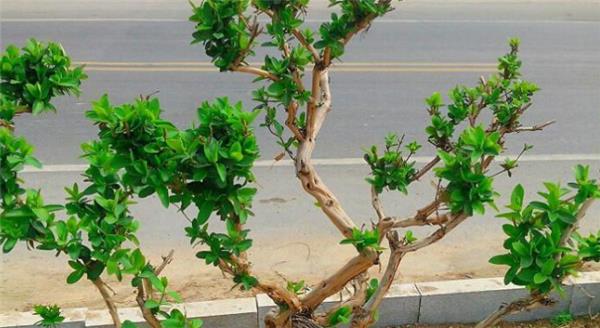
Planting techniques of potted Honeysuckle
1. Potted honeysuckle should control vines.
When we plant honeysuckle in the flowerpot, we should pay attention to control the generation of its vines, first, to control the shape of the tree, to increase its flowering quantity, and second, to promote the maturity of stems. It can obviously improve its appreciation. There are many ways to control vine growth, such as less watering and less nitrogen fertilizer, which are good choices.
2. Change the basin in time
The pot honeysuckle needs to be changed frequently, and the ideal time to change the pot is once every one or two years. If it is a large honeysuckle bonsai, it can be changed once every three to four years. If the pot is not changed in time, it will reduce the absorption capacity of the root system of honeysuckle, accelerate the aging of the plant and slow the growth of honeysuckle.
3. Ensure sunshine
Potted honeysuckle is a characteristic plant that requires high light. When you cultivate it at home, you should put it in a sunny environment as much as possible. If you leave it in a bad light and damp environment, it will make honeysuckle branches thin and weak. Leaves fall off and there are many good symptoms such as less civilization. In addition, when the sprouting strip of potted honeysuckle grows to about five centimeters, paclobutrazol should be sprayed in time to avoid its crazy growth.
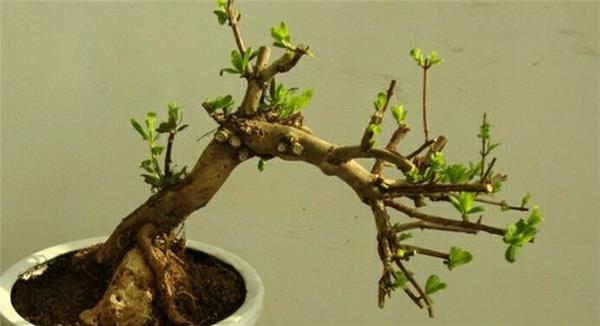
Although honeysuckle has all kinds of pile heads in nature, there are not many suitable for making bonsai, so we should try to choose stumpy roots, stout, vigorous and simple, curved changes, short and compact tree shapes, thick and short internodes, and natural tree stumps.
By cultivating bonsai of honeysuckle, the seedlings of short and easy flowering internodes can also be planted in places with deep, loose and fertile soil and rapid growth. When the ideal roughness is reached, it can be cultivated in the basin. In this way, you can not only watch and pick flowers, but also get a more ideal honeysuckle pile head, killing many birds with one stone. So, what problems should be paid attention to when raising honeysuckle bonsai?
1. Cultivation substrate: although honeysuckle is not strict with the soil, the plant will grow better when the mixture of 60%-70% peat, 20%-30% vermiculite and 10% perlite is used as culture soil.
2. Water and fertilizer management: during the three months before flowering, fertilizers mainly composed of phosphorus and potassium were applied twice. After the flowers withered in late May, thin fertilizer should be applied twice and the new shoots should be properly coring so as to promote the germination of the second batch of flower buds. At the same time, the soil should remain moist and avoid being too dry, otherwise the basal leaves are easy to wither, yellow and fall off and affect flowering. In the hot season, avoid the bright light so as not to burn the tender leaves.
3. Plastic pruning: a pruning is carried out during dormancy to cut off slender branches, weak branches and cross branches, and to truncate the current year's branches, so as to promote new branches and bloom more in the second year.
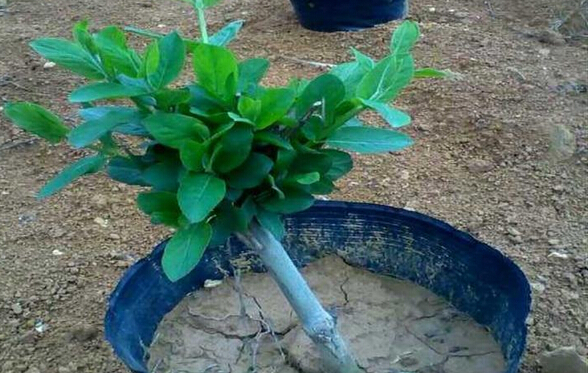
4. pest control: honeysuckle diseases and insect pests are relatively few, occasionally attacked by aphids, endanger new leaves and shoots, make leaves roll up and affect growth, only need to use "aphid lice" 1000 times liquid or other insecticides to control.
In addition to ground planting, honeysuckle is also a rare good material for watching flowers and dry bonsai. Because of its larger branches, although the trunk is vigorous and simple, but the branches are extremely brittle and easy to break and rot, and the larger branches should not easily change their shape and angle, let alone distort the shape and angle of the trunk and branches as they do in making other miscellaneous wood bonsai.
Honeysuckle is not only of high ornamental value, but also of high economic value. It is often used as a source of honey and cultivated as medicinal plants. Its flowers, stems and leaves have strong resistance to many kinds of bacteria and epidemic ☆ banning ☆ cold virus. So, what are the functions and effects of honeysuckle?
Efficacy and function of Flos Lonicerae
Honeysuckle, also known as honeysuckle, honeysuckle, Shuanghua, etc., has been known as a good medicine for heat-clearing and detoxification since ancient times. It is sweet and cold and fragrant, sweet and cold, clearing heat without harming the stomach, and the aroma can dispel evil. Honeysuckle not only can disperse wind-heat, but also is good at clearing blood toxin. It is effective in all kinds of febrile ☆ forbidden ☆ disease, such as body fever, rash, hair spot, heat-toxic sore carbuncle, sore throat and so on.
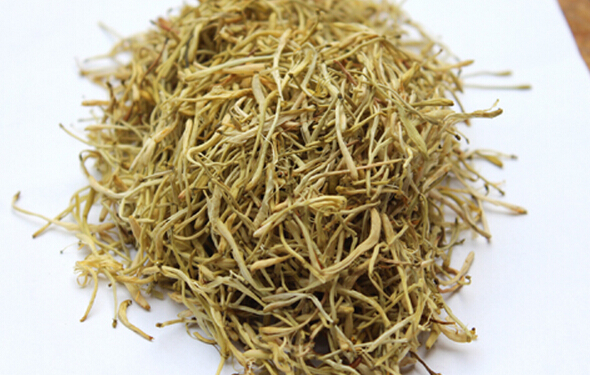
It clears heat and detoxifies, cool and dissipates wind and heat. For carbuncle swelling, furuncle, throat arthralgia, erysipelas, hot blood toxic dysentery, wind-hot cold, febrile fever.
Its efficacy and function are mainly summarized as follows:
1. Antibacterial and antiviral. That is, it has obvious inhibitory effect on Staphylococcus aureus, hemolytic streptococcus, dysentery, typhoid, meningococcus, pneumococci, green pus and influenza virus.
2. Enhance the function of immunity. Honeysuckle can promote lymphocyte transformation and enhance the phagocytosis of leukocytes.
3. Anti-inflammation and antipyretic. Honeysuckle can promote the release of adrenocortical hormone and inhibit inflammation.
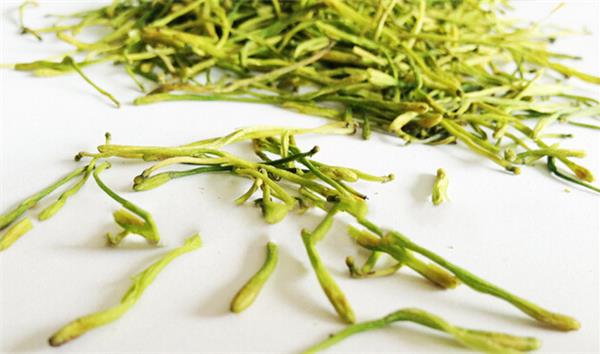
Summary: I hope that after reading this article, you can fully realize the efficacy and function of honeysuckle and the side effects of honeysuckle. In the article, the knowledge about the planting technology of potted honeysuckle is more detailed, which can help you really raise honeysuckle and make the room fragrant.
It clears heat and detoxifies, cool and dissipates wind and heat. For carbuncle swelling, furuncle, throat arthralgia, erysipelas, hot blood toxic dysentery, wind-hot cold, febrile fever.
Its efficacy and function are mainly summarized as follows:
1. Antibacterial and antiviral. That is, it has obvious inhibitory effect on Staphylococcus aureus, hemolytic streptococcus, dysentery, typhoid, meningococcus, pneumococci, green pus and influenza virus.
2. Enhance the function of immunity. Honeysuckle can promote lymphocyte transformation and enhance the phagocytosis of leukocytes.
3. Anti-inflammation and antipyretic. Honeysuckle can promote the release of adrenocortical hormone and inhibit inflammation.

Summary: I hope that after reading this article, you can fully realize the efficacy and function of honeysuckle and the side effects of honeysuckle. In the article, the knowledge about the planting technology of potted honeysuckle is more detailed, which can help you really raise honeysuckle and make the room fragrant.
- Prev

Explain whether mimosa is poisonous and the reason why mimosa is shy.
Explain whether mimosa is poisonous and the reason why mimosa is shy.
- Next

The steps of cultivating Phnom Penh tequila and what are the functions of Phnom Penh tequila?
The steps of cultivating Phnom Penh tequila and what are the functions of Phnom Penh tequila?
Related
- Wuhan Hospital Iron Tree Blooming Result Was Instantly Frightened by the Gardener Master
- Which variety of camellia is the most fragrant and best? Which one do you like best?
- What is the small blue coat, the breeding methods and matters needing attention of the succulent plant
- Dormancy time and maintenance management of succulent plants during dormancy
- Minas succulent how to raise, Minas succulent plant pictures
- What are the varieties of winter succulent plants
- How to raise succulent plants in twelve rolls? let's take a look at some experience of breeding twelve rolls.
- Attention should be paid to water control for succulent plants during dormant period (winter and summer)
- Watering experience of twelve rolls of succulent plants
- Techniques for fertilizing succulent plants. An article will let you know how to fertilize succulent plants.

